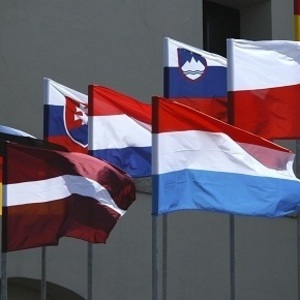GRFA calls for strong global commitment to biofuels at COP22

November 16, 2016
BY Global Renewable Fuels Alliance
On Nov. 16, Bliss Baker, the president of the Global Renewable Fuels Alliance, called on negotiators participating in high-level events now underway at COP22 to seize the opportunities presented by biofuels to support the global transition to a low-carbon transport sector. Baker noted that biofuels like ethanol have been proven to reduce GHG emissions from 40 percent to 90 percent in comparison to fossil fuels.
The high level negotiations follow the release of a United Nations Environment Programme report that outlined how current global emission reduction commitments would fall far short of international temperature targets and stated that global emissions must be cut by a quarter by 2030.
“Negotiators are confronting the enormous challenge of identifying achievable policy options that will significantly, and affordably, reduce GHG emissions.” Baker said. “Biofuels represent the only commercially viable technology available to significantly offset emissions in the global transport sector. In 2014 alone global ethanol production and use reduced GHG emissions by 169 million tons CO2 equivalent.” he added.
The global transport sector accounts for about half of the world’s oil consumption and represents 25-30 percent of global emissions, while having the lowest renewable energy share of any sector. In contrast, recent studies have outlined the massive potential in the coming decades for increased biofuels use and have articulated the need for clear support from policy-makers to achieve it.
“In order to achieve international targets, the negotiations at COP22 must result in decisive support for biofuels production and technology development.” Baker said. “To fully achieve the huge potential of biofuels to cut global transport emissions, the historic political commitments of the past year have to result in concrete, and ambitious action” he concluded.
Advertisement
Advertisement
Related Stories
President Trump on July 4 signed the “One Big Beautiful Bill Act.” The legislation extends and updates the 45Z credit and revives a tax credit benefiting small biodiesel producers but repeals several other bioenergy-related tax incentives.
CARB on June 27 announced amendments to the state’s LCFS regulations will take effect beginning on July 1. The amended regulations were approved by the agency in November 2024, but implementation was delayed due to regulatory clarity issues.
SAF Magazine and the Commercial Aviation Alternative Fuels Initiative announced the preliminary agenda for the North American SAF Conference and Expo, being held Sept. 22-24 at the Minneapolis Convention Center in Minneapolis, Minnesota.
Saipem has been awarded an EPC contract by Enilive for the expansion of the company’s biorefinery in Porto Marghera, near Venice. The project will boost total nameplate capacity and enable the production of SAF.
Global digital shipbuilder Incat Crowther announced on June 11 the company has been commissioned by Los Angeles operator Catalina Express to design a new low-emission, renewable diesel-powered passenger ferry.
Upcoming Events










